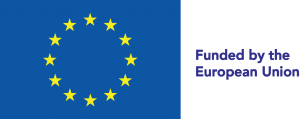Con3Post: Posting of Third Country Nationals. Mapping the Trend in the Construction Sector
The Con3Post project is set up to explore the growing phenomenon of recruitment and posting of third country nationals (TCN), most notably from the Western Balkans, non-EU Eastern Europe and North African regions, to work as posted workers in the EU construction sector. Experts and key stakeholders from selected EU Member States that represent a mix of TCN sending (Slovenia, Poland, Italy) and receiving countries (Austria, Finland, Estonia and Belgium) are brought together to establish transnational cooperation, share information and conduct empirical research to outline current challenges, future scenarios and possible strategic responses to the far-reaching yet largely unexplored consequences/implications of this persistent trend.
To achieve these objectives, five research institutions with substantial previous experience and knowledge in the field of posting of workers and twelve associated partners representing both public authorities and social partners will work together over the course of two years. The following five topics will be systematically explored through the prism of the current and future EU labour market and mobility dynamics:
1) labour rights and representation;
2) social welfare and occupational safety and health;
3) managing transnational workplaces and depicting other future workforce-related challenges of the EU construction sector;
4) monitoring violations and disputes (including undeclared work) relating to TCN.
Con3Post sets out to explore an emerging and under-researched trend of posting of TCNs in the construction sector in order to produce new evidence-based knowledge, provide space for multi-stakeholder transnational cooperation and exchange of information within and beyond the EU, contribute to nourishing social dialogue at the sectoral level and promoting fair and safe working conditions for vulnerable workers. In line with the EaSI-Progress Programme, the strategic objectives of the project are therefore as follows:
1) Promoting and enhancing effective application of EU rules on workers’ protection and equality and safeguarding vulnerable workers.
2) Establishing and reinforcing effective multi-stakeholder partnerships that work together to define problems, consult, develop opinions, strategies and recommendations.
3) Providing high-quality comparative policy research and analysis in order to inform debates and contribute to the evidence-based policymaking on the sectoral, regional, national and EU level.
4) Enhancing multi-stakeholder information sharing and promoting mutual learning across countries in the EU and European neighbourhood.
5) Having a lasting impact on competent authorities, companies, trade unions and workers after the Action is concluded.
Policy brief in Polish.
Policy brief in English.
Policy brief in Ukrainian.
Newsletter No. 1 (in English)
Newsletter No. 1 (in Polish)
Newsletter No. 1 (in Ukrainian)
Newsletter No. 2 (in English)
Newsletter No. 2 (in Polish)
Newsletter No. 2 (in Ukrainian)
Newsletter No. 3 (in English)
Newsletter No. 3 (in Ukrainian)
Newsletter No. 3 (in Polish)
Newsletter No. 4 (in Polish)
Newsletter No. 4 (in English)
Newsletter No. 4 (in Ukrainian)
Coordinator:
Research Centre of the Slovenian Academy of Sciences and Arts (Slovenia)
Duration
2019 - 2020
Source of funding
EaSI-Progress Programme of the European Union
Partners
European Centre for Social Welfare Policy and Research (Austria)
Ca’Foscari University of Venice (Włochy)
University of Jyväskylä (Finlandia)




